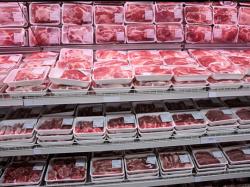Rabobank Beef Quarterly Q4: 2014 Outlook – High Global Prices To Continue As Supply Remains Tight
December 20, 2013 | 2 min to read

The Rabobank Global Cattle Price Index has risen by 6% since June, driven by lower-than-expected beef supply in the main exporting countries and strong Asian demand. According to a report from Rabobank, supply will remain tight, especially in 1H 2014, driven by lower feed costs, induced herd rebuilding in the US and the strong export demand from Brazil and Argentina, which will continue to support strong prices. In 2014, Rabobank forecasts continued high prices while global beef supply is expected to rise only slightly, meanwhile China's demand for imports are expected to increase. The recent announcements to (re-)open import markets will benefit beef trade going forward.
Rabobank analyst Albert Vernooij says; "The Rabobank Global Cattle Price Index improved further in H2 2013, supported by both continuing strong Chinese import growth and lower-than-expected supply in the main export markets making cattle prices mainly positive."
However, the market has been unable to reach its full potential due to consumers' resistance against high prices in the United States and the European Union, still two of the main beef markets. In addition, exchange rate movements have impacted the competitive position of exporters, resulting in Brazilian and Argentine beef becoming increasingly attractive and leading to a surge in exports.
For 1H 2014, Rabobank expects further upside for the global beef market, with cattle prices remaining elevated in most regions. The main question in many regions remains where to source sufficient beef supplies. With herd rebuilding as the first priority globally, supported by improving climate conditions and moderating feed costs, global beef production will increase only slightly and is expected to decline sharply in key markets like the US. The main demand wildcard will be consumer resistance to high beef prices and the growing availability of competing animal proteins due to the improved margin outlook as feed prices tumble.
"China's importance and influence on the global beef market is set to continue to increase in 2014," commented Vernooij. "China's imports of both frozen and chilled beef are expected to grow further, driven by the shortage of beef in the domestic market, reflected in record high retail prices. We believe that the value of the Chinese markets will grow in excess of 10% annually over the next three years."
A number of recently announced trade deals will also come to bear in the beef market over the coming months and years, including commitments to reopen closed or impeded markets for beef imports and the Trans-Pacific Partnership, which set goals to improve trade between five beef-exporting countries. The removal of trade barriers will be positive for global beef trade and, combined with lower feed costs, should support renewed investment in the global beef industry.
For more information please contact the report's authors:
Europe – Albert Vernooij: albert.vernooij@rabobank.com
USA – Don Close: don.close@rabobank.com
Source: Rabobank
